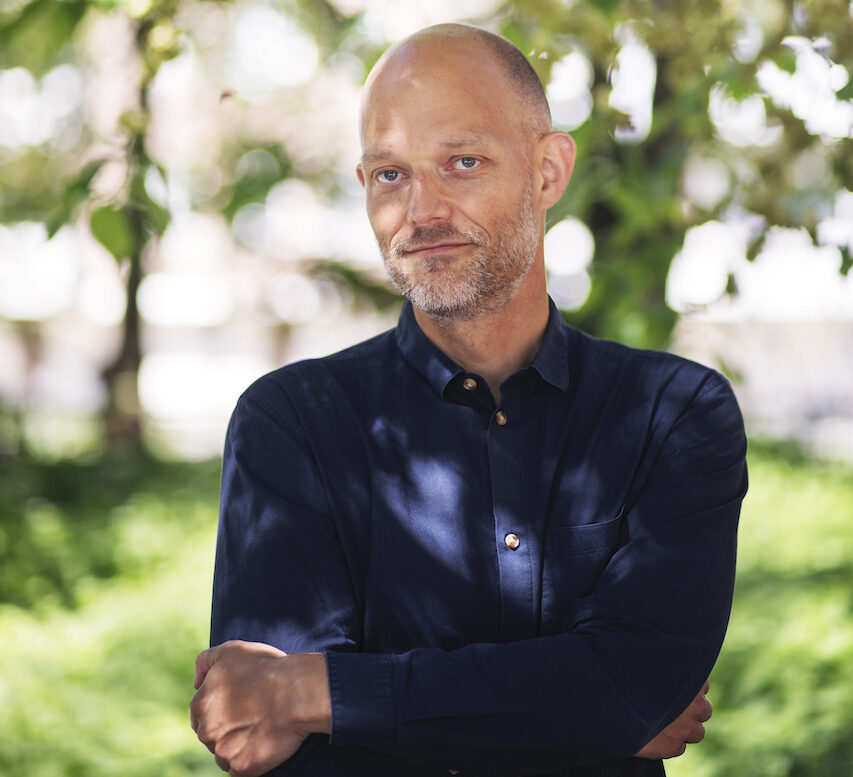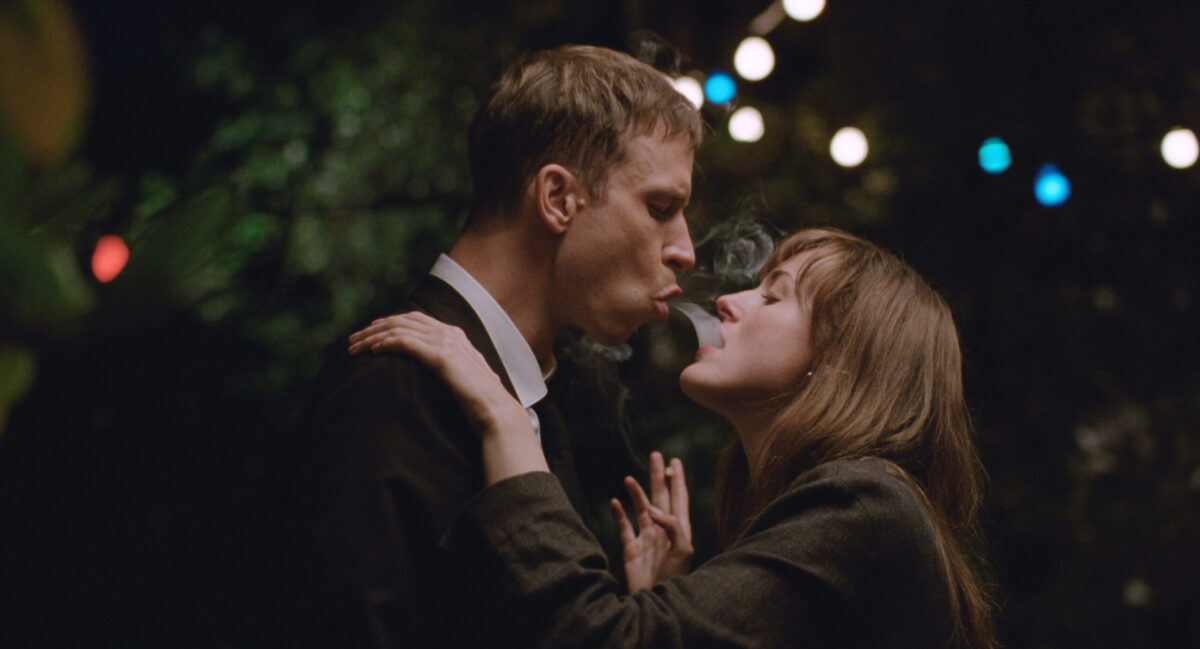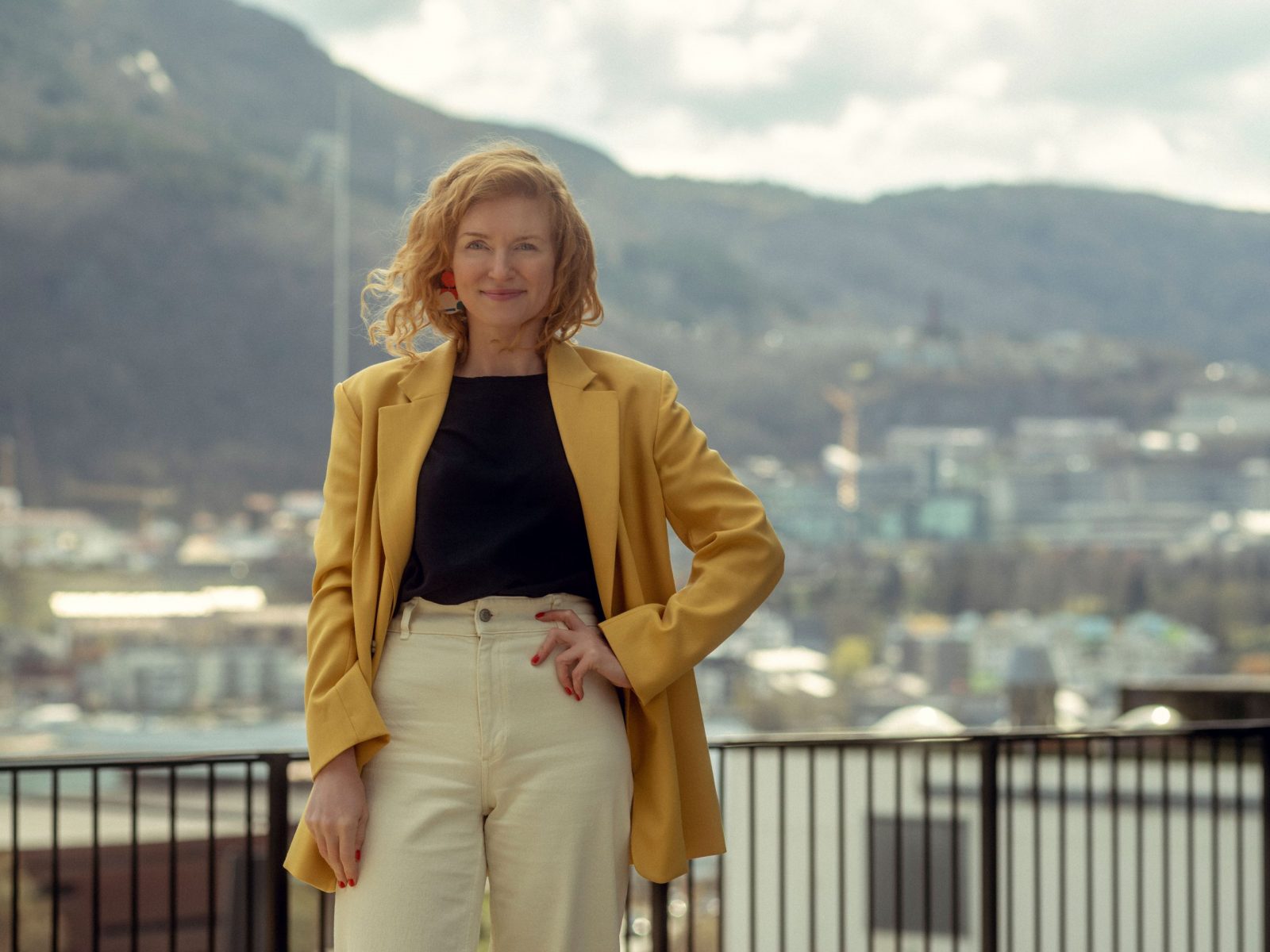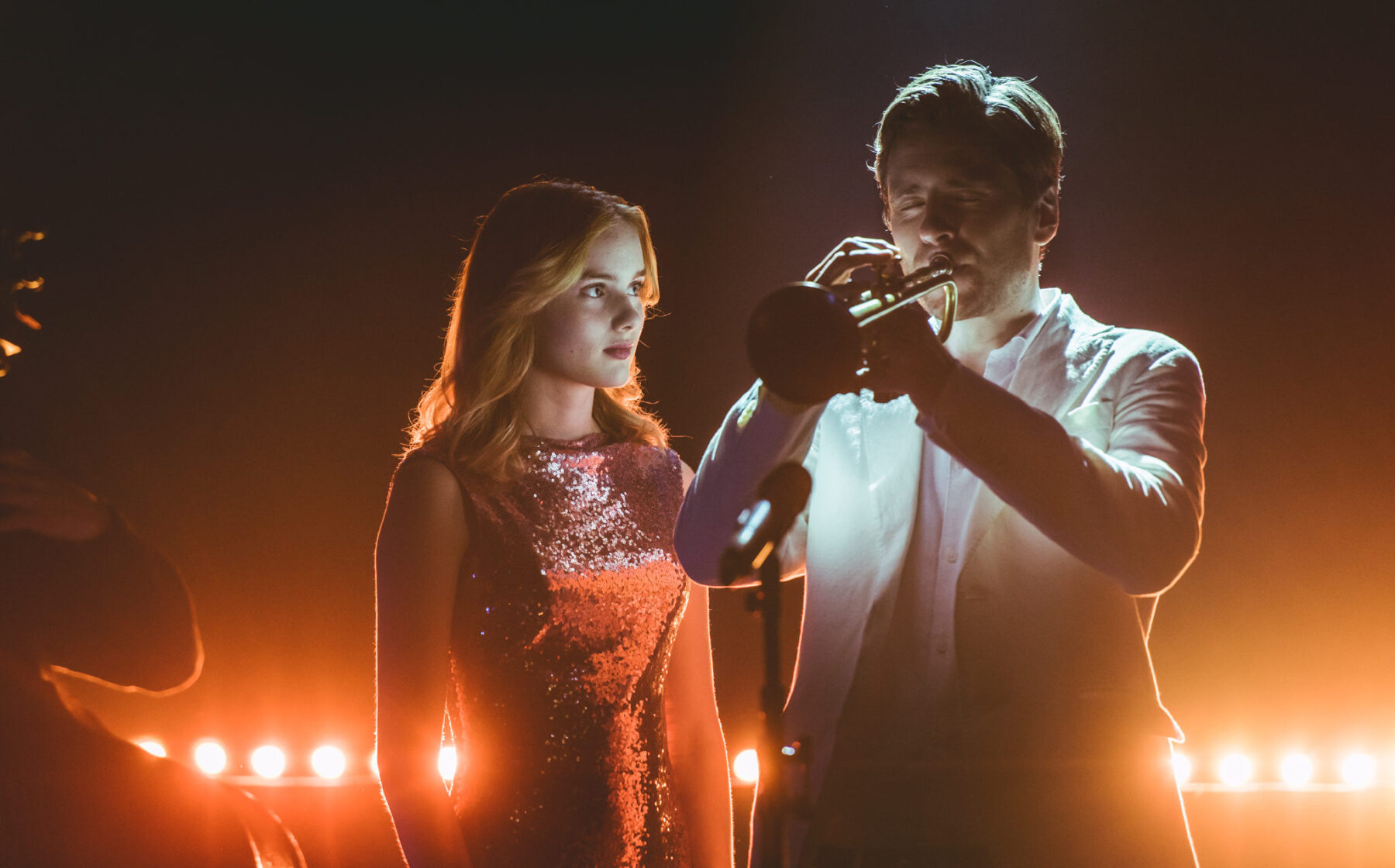Following an Oscar nomination for co-writing The Worst Person in the World, Eskil Vogt takes the director’s chair for The Innocents, an unsettling tale of malevolent youth.
“I guess you would put my movie in the arthouse-scary-movie genre,” Vogt says about The Innocents, a story of four children testing the boundaries of friendship and physics on the edge of Oslo’s vast forest. Vogt is currently on a career high. His screenplay for The Worst Person in the World – co-written with its director Joachim Trier – garnered him an Oscar nomination and The Innocents, his second feature as director, has been a critical success in Norway.
As a screenwriter, his collaborations with Trier include the celebrated drama Oslo, August 31st (2011) and the eerie coming-of-age movie Thelma (2017). In his directorial debut Blind (2014), Vogt explored the disturbing fantasy life of a woman who has lost her sight. Similar ideas of otherness imbue the narrative tension in The Innocents, in which four children aged between 7 and 11 – Ida, Anna, Aisha and Ben – develop supernatural abilities while living on a housing estate fringed by wild woods. They each embrace these powers in different ways, with shocking consequences.
On the eve of the UK release of The Innocents, Vogt talked to Norwegian Arts about the morality of childhood, the primal nature of forests, and attending this year’s controversial Oscars ceremony.
With The Innocents, did you set out to make a contemporary folk story?
At the very beginning the idea was more about the magic of childhood. About a group of kids, playing together, and something magical, inexplicable, happens and they go along with it. And then they go home and sit down in front of the television or the dinner table and there’s no magic anywhere. It’s gone. And you would think that was probably just their imagination. I thought it would be interesting if that was real. They have powers. Kids with powers: that won’t end well.
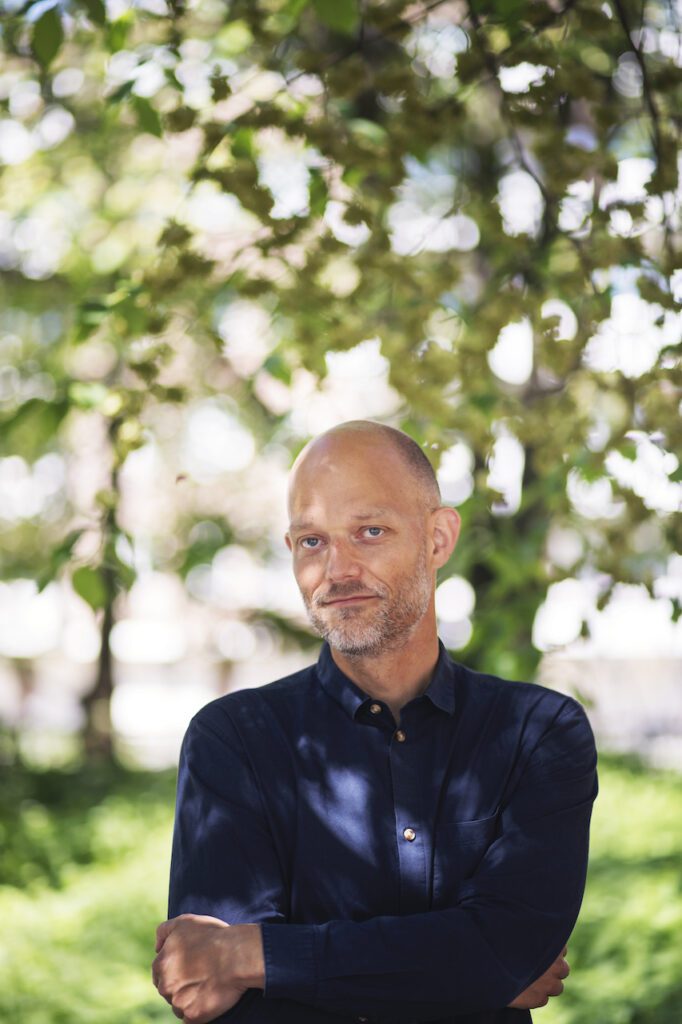
Eskil Vogt, director of The Innocents (photo: Christian Breidlid)
So, you inverted the idea of childhood innocence?
[I was] remembering my own childhood and talking to other people about their childhood: remembering experimenting, testing limits, being cruel at times. Those things you don’t really enjoy remembering. Almost all kids have been cruel to animals or other kids. Younger siblings have suffered a lot. And then that moral aspect came up, why do we do that? Maybe we need to find our own sense of morals instead of just our parents’ morals. We need to do some stuff that’s forbidden. How does that feel? Oh, I feel bad. Then I won’t do that again.
Some people say [The Innocents] is an ironic title. I don’t think it’s ironic, it’s more like a question. Because kids are innocent, in the way that they’re not responsible for their actions. They’re not fully formed yet. There’s a very good reason why kids can’t be tried and sent to prison. But still, the idea that they’re just pure angels? If you observe kids, or your own kids, you know that’s not true. Because we’re all born egotistical narcissists.
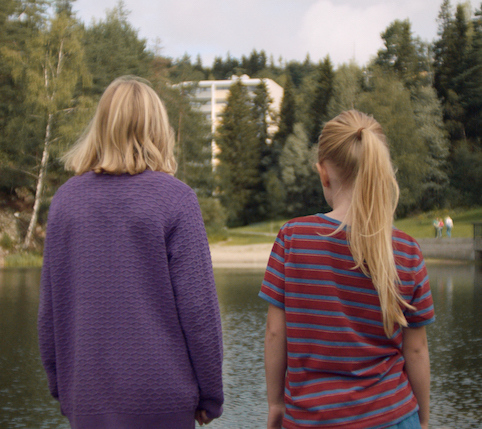
Alva Brynsmo Ramstad and Rakel Lenora Fløttum as Anna and Ida in The Innocents (Signature Entertainment)
How did you cast the four remarkable child actors?
We knew this would be the big difficulty in making the movie after I’d written the screenplay. I’d written myself into a corner with four kids and a cat. Never work with children and animals? I even chose the worst animal to work with. You can train a dog. A cat does what a cat wants.
But the idea that you shouldn’t work with kids is not true. You just need to cast well. You need to use time to find them, find the right kids, the best kids. And I changed the roles to accommodate the ones I found. Obviously, you find very intelligent kids that you can communicate with and they can understand the process. The idea of tricking kids to react in a spontaneous way doesn’t work when they are the leads. Even the 7-year-old who plays Aisha [Mina Yasmin Bremseth Asheim] – the youngest one – she would understand the difference between the character and herself. She’d be like: ‘What’s my character’s motivation here?’
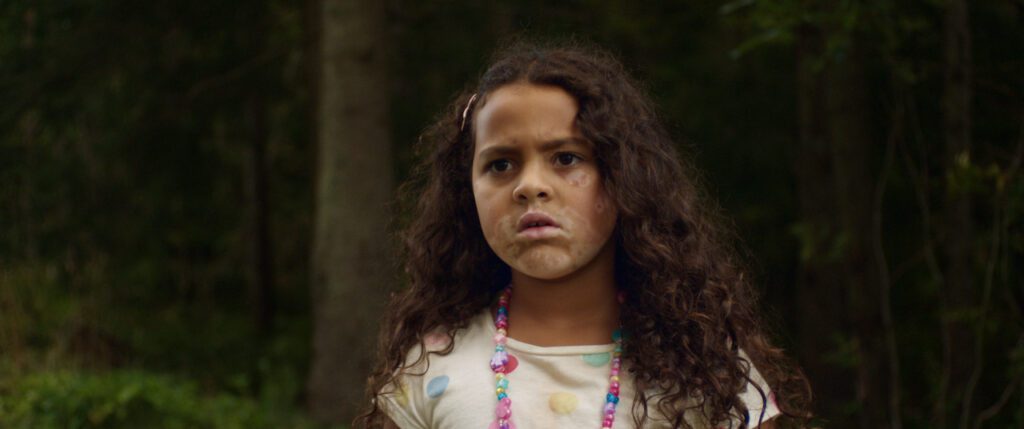
Mina Yasmin Bremseth Asheim in The Innocents (Signature Entertainment)
What was the purpose of setting it on a housing estate?
It was partly inspired by a place where I lived when I was a kid. I remembered that feeling of running around in hallways and communal areas with some adults. But the forest was right next to it. You had these huge apartment buildings with all these people but you could always just turn right and walk 50-metres and you’d be completely alone; you could play your games with your friends or experiment with no one watching. You had civilisation here and you had Lord of the Flies there. That closed world leant a fairy tale aspect to it even though it’s very real.
Is Oslo a cinematic city?
It’s not the most beautiful city in the world but we are very cinematic because we have a lot of hills. There are a lot of interesting perspectives, it’s very easy to find a great angle for a shot and have interesting movements and lines in your compositions. And nature is always right around the corner in Norway which is something that, apparently, we always use when we make scary movies: that if you go out into the forest something bad would happen. Which is not really the story in my movie, but I understand why people use it that way. That contrast is very true to Norway and, of course, cinematic.
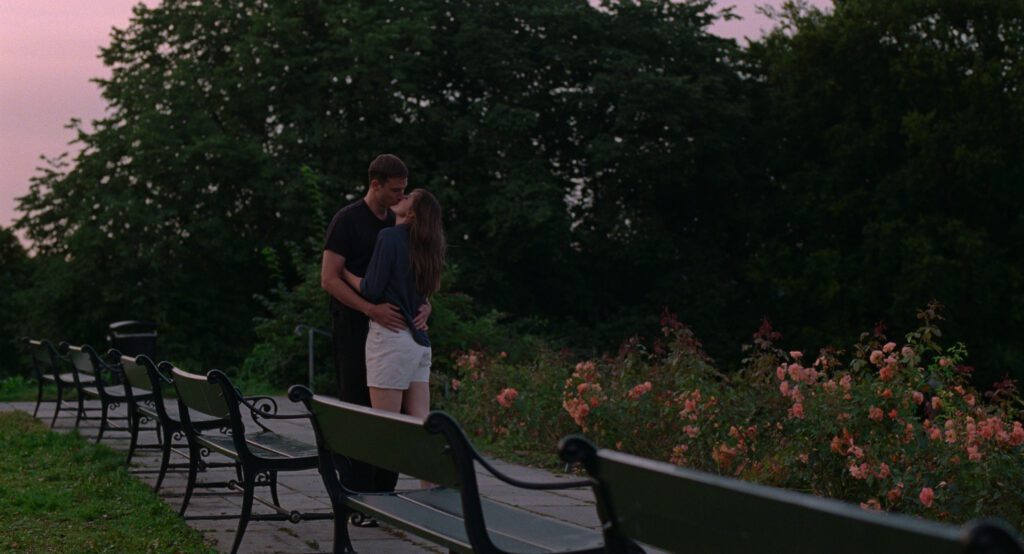
Herbert Nordrum and Renate Reinsve as Eivind and Julie The Worst Person in the World, co-written by Eskil Vogt and its director Joachim Trier (Photo: courtesy of MUBI)
What do you think is behind the current renaissance in horror films?
Some people say that just lately, during the Coronavirus pandemic, there’s been an explosion of horror movies. That’s partly because a lot of horror movies are contained locations which make it easier for a ‘Corona-shoot’. It could be as easy as that. That wasn’t the case with my movie, which was shot before the pandemic. Covid hit us during editing.
It’s also been a genre that has been able to tap into a lot of stuff that people are feeling and going through and I think there’s a lot of anxiety in our society at the moment. Maybe we need those movies to have some sort of cathartic feeling.
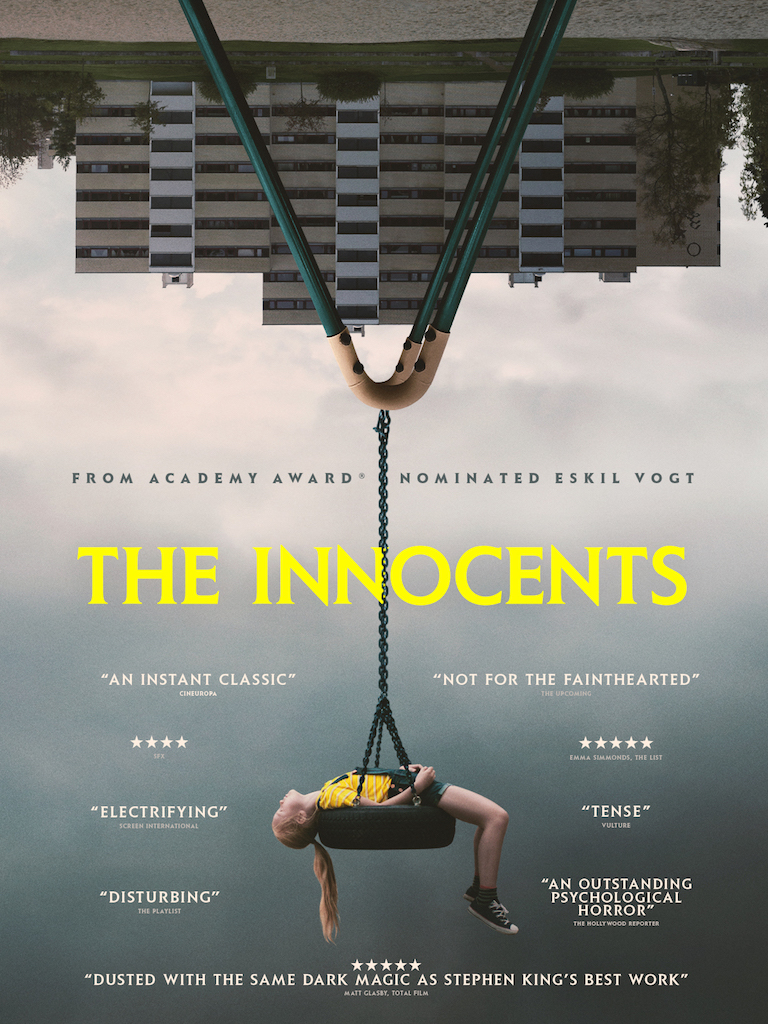
Film poster for The Innocents (Signature Entertainment)
How does collaborating with Joachim Trier compare to directing your own film?
With Joachim we’re so close friends and collaborators – we’ve been working together since our teens – so I can express myself working that way, where I feel like I am putting a lot of myself in there. I express myself through his movies, so in a way I feel they are also my movies, yet he does all that work of directing.
You’re so lucky to be able to make a movie because a lot of people trust you with so many millions that it feels like bad taste to complain, but it’s such a hard job. The amount of pressure you’re under. So, what a luxury, I can sit here with Joachim, my best friend, and dream up a movie and then he goes out. And I’m like: ‘Good Luck!’.
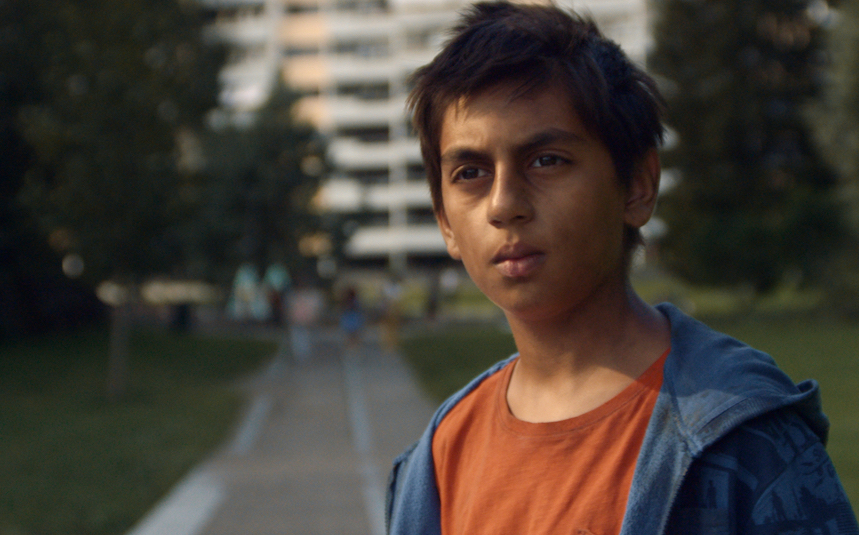
Sam Ashraf as Ben in The Innocents (Signature Entertainment)
This year’s Oscar ceremony made headlines – what was your experience?
Well for obvious reasons it was particularly bonkers this year. When you come from the outside, it was just a bonus to go to the Oscars, to be nominated, to be part of those events, to meet colleagues that we’ve admired and talk to them and they see us as equals because they’ve seen the movie. That was a ride. And we can just go back to Norway. It’s not where we live, so we can enjoy the weirdness. We’re tourists in that world.
The Innocents is released by Signature Entertainment in UK cinemas and on digital platforms on 20 May 2022
Would you like to stay in touch with Norwegian Arts and receive news of upcoming Norwegian cultural events in the UK? Sign-up for our newsletter.

